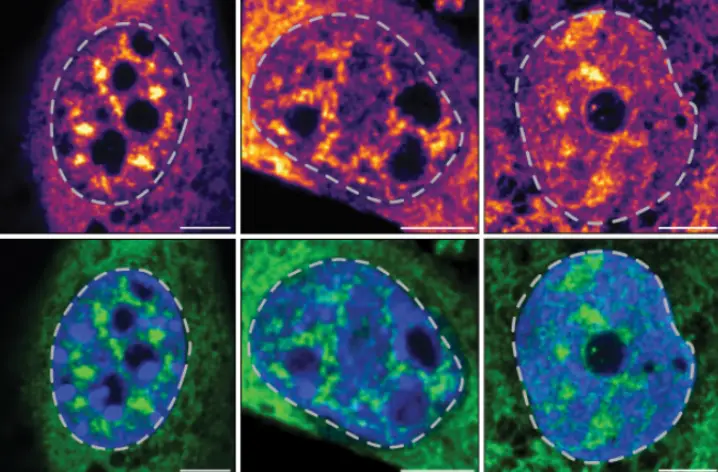LA JOLLA, CA—Researchers Alicia Gibbons and Amparo Martínez Pérez, Ph.D., of La Jolla Institute for Immunology (LJI) have been awarded WHAM Edge Awards from Women’s Health Access Matters (WHAM). These awards will fund pioneering new research into how sex-based differences in the immune system affect patients with triple negative breast cancer or endometriosis.
“WHAM is a wonderful organization,” says Gibbons. “I am so honored to receive the WHAM Edge Award and so excited to study how to make triple negative breast cancer treatment better.”
WHAM Edge Awards support early career scientists leading research on sex-based differences in four critical areas: heart disease, brain health, autoimmune disease, and cancer. The winners of this round of WHAM Edge Awards were announced at the WHAM Forum, held virtually on Nov. 18.
“These awards are very competitive, so I’m beyond excited to receive this support for my research,” says Martínez Pérez.
Taking aim at breast cancer
Gibbons will investigate a promising new strategy for reducing dangerous side effects during immune checkpoint blockade therapy, a form of immunotherapy used to treat triple negative breast cancer.
“As a cancer research trainee with a family history of breast cancer, I’ve always hoped for the opportunity to study the disease,” says Gibbons. “Both of my grandmothers passed away from breast cancer, so this is very meaningful for me.”
Triple negative breast cancer is a very aggressive, invasive form of cancer. Immune checkpoint blockade therapy is one of the few treatment options available to patients with this cancer. Unfortunately, some patients who receive immune checkpoint blockade therapy experience serious side effects called “immune-related adverse events,” or irAEs.
Gibbons says her project will build on a previous discovery from the lab of LJI Associate Professor Sonia Sharma, Ph.D., showing that a natural metabolite (called LPC 18:2) may prevent these side effects. For the new study, she’ll work closely with Sharma to study the effects of administering LPC 18:2 in a preclinical breast cancer mouse model.
“Focusing on breast cancer allows us to not only improve treatment for a cancer that predominantly affects women, but it also allows us to study the specific mechanisms that cause irAEs in women,” says Gibbons.
“Women generally have stronger immune responses than men, and research suggests that women may be more likely to develop irAEs, or to experience them in certain tissues,” Gibbons adds. “This project gives us the opportunity to begin to dissect why those sex differences exist and how we might keep those differences in mind to improve cancer treatments.”
Demystifying reproductive health
Martínez Pérez is diving into a medical mystery: What is the immune system’s role in endometriosis?
Endometriosis is a gynecological disease that affects one in 10 women of reproductive age. People with the disease have endometrial tissue (resembling the lining of the uterus) growing on organs and tissues outside of the uterus. This tissue thickens and breaks down with every menstrual cycle, leading to debilitating pain and even infertility.
No one knows exactly what causes endometriosis, but Martínez Pérez suspects that immune cells may have a role in the disease. To find out, she recently led a project through the Tullie and Rickey Families SPARK Awards for Innovations in Immunology, funded by the Rosemary Kraemer Raitt Foundation Trust, to collect menstrual effluent from volunteers with and without endometriosis.
Menstrual effluent is the scientific way to say menstrual blood. This monthly discharge includes red blood cells, of course, but it is also rich with many types of immune cells.
For her new project, Martínez Pérez will investigate exactly what these immune cells are doing in the reproductive tract. Are some targeting viruses? Could others be driving inflammation?
“We can use this type of sample to understand the types of local immune cell responses, and how immune cells may be driving diseases within the female reproductive tract,” says Martínez Pérez.
“This type of research is not only important for understanding endometriosis, but it may also help us better understand other conditions affecting the female reproductive tract, including cancers and fertility issues” adds Martínez Pérez. “For example, if we can understand how the immune system’s T cells locally respond to HPV, we might figure out why some people are more vulnerable to HPV infections, that lead to cervical cancer.”



